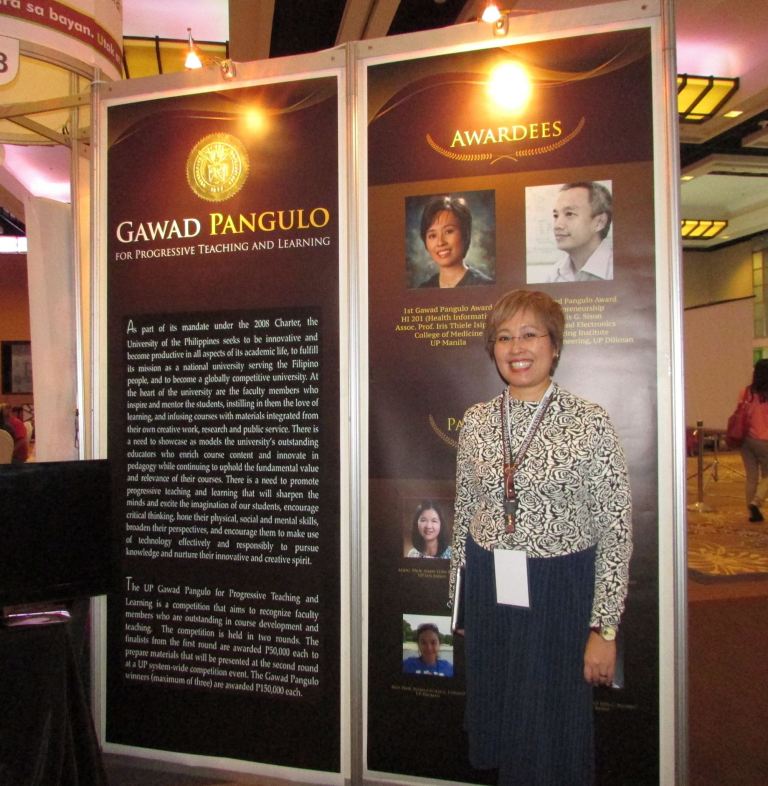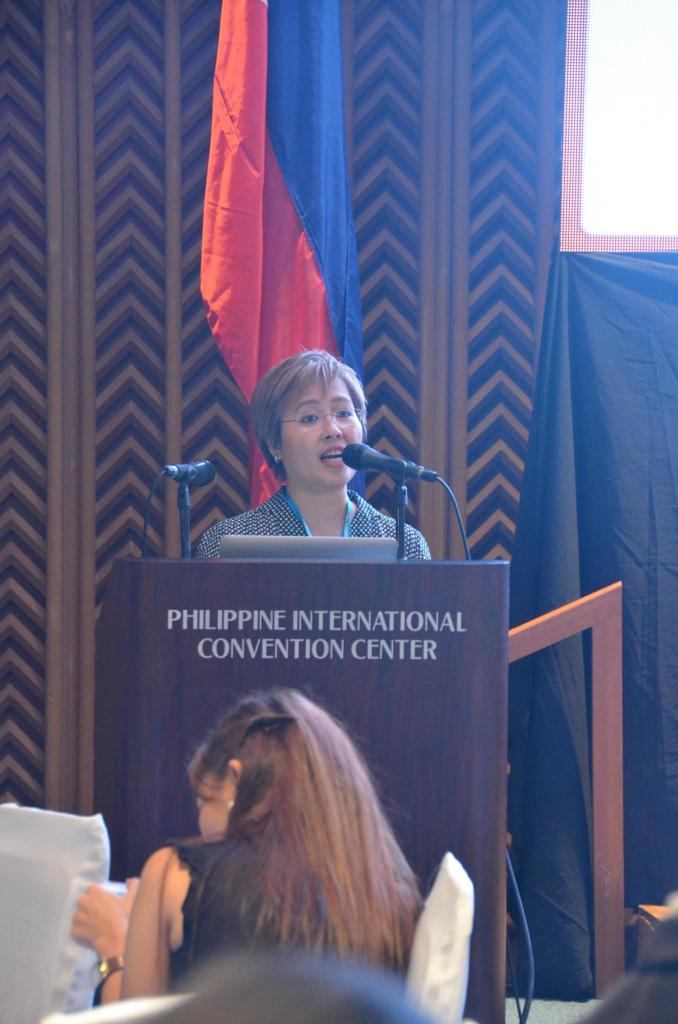by Andre DP Encarnacion, UP MPRO
While her online supporter base knows her better as the Endocrine Witch (and her equally popular recent moniker, “Dok Bru,” short for “Doctor Bruha”), UP-PGH Endocrinologist Iris Thiele Isip-Tan has certainly become many things to many people in recent years.
The wife and mother of two sons is best known to her official patients as an endocrinologist—an internist, or duktor ng lamang loob, in her terms, specializing in thyroid, diabetes, adrenal, and other hormone disorders. To her colleagues at the UP College of Medicine, she is a highly innovative teacher—the first-ever Gawad Pangulo Award winner for Progressive Teaching and Learning and an advocate of blended learning.
To many of her online followers, however, Iris still best known as perhaps the best online local source for educated views on endocrinology. Moreover, as the current head of the UP Manila Medical Informatics Unit and the Director of the UP Manila Interactive Learning Center, she is currently helping others utilize digital technology to improve the Philippine health landscape.
Iris’ moniker was famously adopted early on from the sisterhood of strict mentors in endocrinology who were themselves called “witches.” “One of my mentors said, ‘You’re even proud to be called a witch.’ But then I told them that we already have characters like Hermione Granger from Harry Potter, who go against the traditional concept. So that’s how it started.”
The right information
With several definitions of “health informatics” floating in cyberspace, Iris had to construct one for herself. “Health informatics is that field where we aim to get the right information to the right person at the right time,” she says. This overarching vision, though simple to some, has become a guiding philosophy for her, one which she can easily impart to the lay person.
There are few avenues in this doctor’s life that reflect this more than her Facebook page. Begun in 2012 as a complement to her official web pages (dokbru.endocrine-witch.net and endocrine-witch.net), it emerged to give her readers access to her content on “free data” packs. Despite not being able to give actual consultations online, Dr. Isip-Tan thought there was at least some information she could give out to help the public make better health decisions.

“I noticed in PGH that there were many illnesses that should not have worsened if only the people had the proper information,” she says. “So I said, OK, you can ask questions and I will answer, albeit with certain limitations.”
Doing this has surprisingly helped her in her clinical practice as well. “There were things that I thought I could explain well, but then I found that not all patients got what I said. So it had to be simpler.” Iris also committed herself years ago to using Filipino in her public social media communications to make her advice accessible to countrymen from all walks of life.
Lifelong learners
Dr. Isip-Tan’s passion for getting the right information out can also be seen in the classroom. She currently teaches HI 201, an introductory graduate course in health informatics. One notable requirement of hers is that her students create their own blogs for class.
“The primary reason I ask them to do this is because health informatics is not yet fully in the mainstream here. When you say you’re taking your Master’s in Health Informatics, people reply, ‘What’s that?’ So with the blogs, students can be able to leave a bit of an online footprint for health informatics in the country.”
Having blogs also allows her students to get comments from actual practitioners and graduates of the program. “That was the premise for applying for the Gawad Pangulo Award, that there was a social aspect to it,” she says. “Even the higher-year students are guiding the first-year ones.”
While some applicants to the program initially worry about their lack of experience in coding and quantitative methods, Iris says that these are things that can be mastered along the way. What she looks for in students is the willingness to take something on and learn on the spot.
“Every day you just learn new things… But as a doctor, you have made the commitment to be a lifelong learner. And that’s the same quality that I look for in my graduate students—that they are willing to learn and accept challenges.”
Spinning off
Despite the hectic demands of balancing three aspects of her professional life—being a physician, a professor, and a health informatics practitioner—Dr. Isip-Tan says she has a lot more planned. Beyond UP, she is also a founding member of #HealthXPH, a multidisciplinary collaboration to discuss and use emerging technologies and social media to change the Philippine health landscape.
#HealthXPH began as an idea among doctors connected over social media to begin conversations (inspired by the famous ‘Doctors 2.0 & You’ conference in Paris) on health. Together with friends like Dr. Gia Sison, Dr. Remo-tito Aguilar, and Dr. Narciso Tapia, Iris began this by hosting Twitter chats every Saturday evening for everyone interested in health topics.

With their growing following and with a little help from entities like the DOST-PCHRD, the group was eventually able to launch the first ever Healthcare and Social Media Summit in the country three years ago. The last event, which drew hundreds of participants, also produced an important spinoff. “MentalHealthPH came out of our second conference,” she says. “The young people behind it met during our brainstorming session. Now they have their own tweet-chat with the hashtag #usaptayo.”
With her busy schedule, she also plans to explore telemedicine, both as a service and as a necessity—provided, of course proper protocols are in place to protect her patients.
“Abroad, people are already exploring things like Skype to follow up people with diabetes,” she notes. “It’s not yet that common here, and I never thought I would eventually need to do it. But there is a need, considering the traffic these days. I also have patients from the Visayas and Mindanao who fly in and then all of a sudden I can’t make it to the clinic. I have to do something for them. And that’s also where I see the future of medicine is heading.”
Source: https://www.up.edu.ph/index.php/whos-afraid-of-the-endocrine-witch
